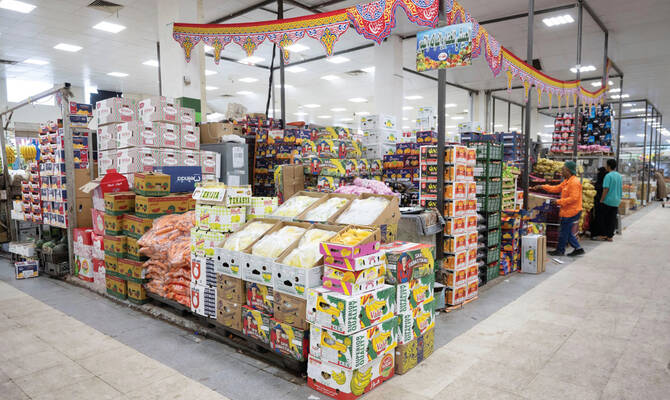RIYADH: Credit provided by finance companies in Saudi Arabia rose to SR96.26 billion ($25.67 billion) in 2024, marking a 13.6 percent increase compared to the previous year, according to the latest figures from the Saudi Central Bank.
Personal finance led the way, accounting for 29 percent of total lending, or SR27.6 billion. Auto financing followed closely at 26 percent (SR25.16 billion), while residential real estate loans comprised 24.27 percent, amounting to SR23.36 billion.
Although it represents a smaller share of total lending, credit card finance recorded the most significant growth, surging 52.4 percent year on year to SR1.92 billion.
Commercial real estate financing also saw robust expansion, rising 20 percent to SR4.92 billion. Auto and personal loans maintained solid momentum, growing by 18.8 percent and 18.6 percent, respectively.
The retail segment — including personal, auto, housing, and credit card financing — continued to dominate the portfolios of finance companies in 2024. Lending to micro, small, and medium-sized enterprises also played a key role, representing approximately 19 percent of total credit. This is nearly double the share of MSME lending seen among traditional banks.
In contrast, financing for large corporations remained limited, as major firms continued to rely on bank loans or capital markets to meet their funding needs.
Profitability in the sector also improved markedly according to SAMA data. Net income rose by 72.13 percent to SR2.86 billion, while return on assets increased from 2.59 percent in 2023 to 4.13 percent in 2024. Return on equity reached 9.58 percent, up from 6.97 percent the previous year.

The expansion of finance companies in Saudi Arabia has been bolstered by regulatory reforms aimed at promoting financial inclusion and boosting competition. (SPA)
Together, these trends indicate growing confidence in the sector, increased borrower demand, and improved cost management — factors that position finance companies for further expansion, particularly in underserved and fintech-driven lending segments.
In recent years, finance companies in Saudi Arabia have played an increasingly important role in expanding credit access, particularly for underserved segments such as SMEs and individuals outside the traditional banking network.
The expansion of finance companies in Saudi Arabia has been bolstered by regulatory reforms aimed at promoting financial inclusion and boosting competition. A significant milestone came in January 2023, when SAMA amended Article 8 of the Implementing Regulation of the Finance Companies Control Law, lowering the minimum paid-up capital requirement for firms focused on financing SMEs to SR50 million. The move was intended to attract investors and encourage the launch of specialized finance firms serving the SME sector.
In a further push to support fintech innovation aligned with the Kingdom’s Vision 2030, SAMA also set a minimum capital threshold of SR5 million for Buy-Now-Pay-Later providers.
These policy changes have led to a noticeable uptick in market participation. By the end of 2024, SAMA had licensed 62 finance companies operating across various segments, including personal finance, mortgage lending, leasing, and fintech-based services.
Despite representing just 3.26 percent of total lending in Saudi Arabia — compared to SR2.96 trillion in bank loans — finance companies are playing an increasingly vital role in the Kingdom’s financial ecosystem.
Unlike commercial banks, which benefit from extensive deposit bases and corporate lending capacity, finance companies are non-deposit-taking institutions that often serve niche or underserved markets.
Interest rates offered by finance companies typically exceed those of traditional banks, reflecting differences in funding sources and borrower risk profiles. While banks draw from low-cost deposits and operate with greater economies of scale, finance companies depend on equity, interbank loans, or capital markets for funding.
As a result, their annual percentage rates tend to be higher, especially when serving higher-risk customer segments.
Fintech expands footprint
Saudi Arabia’s finance sector is evolving rapidly, with the emergence of fintech-driven players complementing traditional non-bank lenders.
Among the most notable additions to the landscape are debt-based crowdfunding platforms, which are regulated by SAMA under the finance companies’ framework.
Unlike conventional finance companies such as Nayifat or Bidaya, which lend directly using their own capital and assume full credit risk, these platforms act as intermediaries.
They connect retail or institutional investors with borrowers — often micro and small enterprises — allowing investors to fund loans directly. The platforms themselves earn fees for facilitating the transactions, while the credit risk is borne by the investors, not retained on the platform’s balance sheet.
This innovative model is helping to bridge financing gaps for SMEs and underserved communities, in line with the Vision 2030 objective of expanding financial access and economic participation.
In a related move that highlights the sector’s momentum, Tamara Finance Co. became the latest company to receive SAMA licensing in March, bringing the total number of licensed finance companies in the Kingdom to 65.
The company was approved to offer consumer finance and BNPL services, further reinforcing SAMA’s commitment to fostering financial innovation.
Tamara, Saudi Arabia’s first fintech unicorn, achieved a $1 billion valuation in 2023 following a $340 million Series C funding round. Its rise coincides with a sharp increase in BNPL adoption across the Kingdom.
A 2024 report by rival platform Tabby revealed that 77 percent of Saudi consumers now use BNPL services — often for essential expenses such as education, healthcare, and insurance — challenging the perception that BNPL is primarily for discretionary spending. These developments underscore SAMA’s broader strategy to diversify credit sources, enhance consumer access to financing, and drive the shift toward a digital, cashless economy under Vision 2030.
















